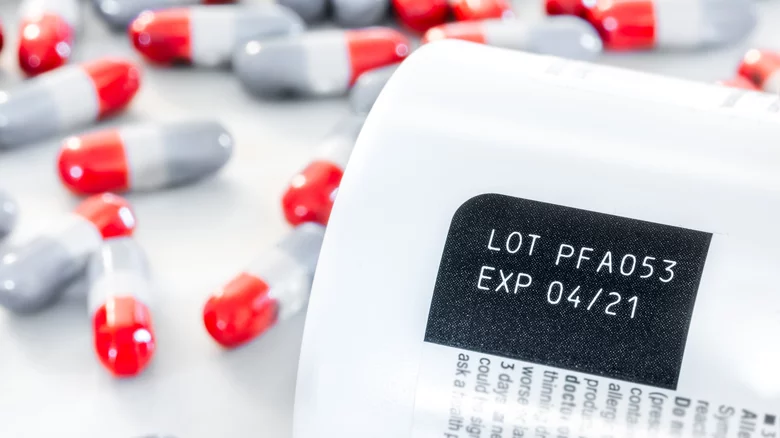Understanding Medicine Expiry Dates: What You Should Know
When was the last time you checked the expiry date on your medicine before taking it? If you're like most people, you might overlook this important detail. However, understanding medicine expiry dates is crucial for both your safety and the effectiveness of the treatment.

Medicomp India is here to help you navigate the complexities of medicine expiry dates, ensuring that you make informed decisions about the medicines you purchase and consume.
What Does a Medicine Expiry Date Mean?
A medicine expiry date is the date after which the manufacturer cannot guarantee the safety or efficacy of a medicine. This date is determined based on stability testing conducted by the manufacturer under specific conditions, ensuring the product maintains its intended quality, potency, and safety up to that date.
The expiry date is not just a formality; it is there to protect you from potential risks. Consuming medicines past their expiry can lead to reduced effectiveness, unexpected side effects, or, in some cases, serious health risks. That's why it's essential to always check the expiry date before purchasing or using any medicine.
Factors Affecting Medicine Expiry Dates
Several factors influence the expiry date of a medicine:
- Chemical Stability: Medicines are made up of various chemical compounds. Over time, these compounds can break down or change, reducing the medicine's effectiveness or creating harmful byproducts.
- Storage Conditions: How a medicine is stored can significantly impact its shelf life. Exposure to light, heat, or moisture can accelerate degradation. That's why many medicines come with specific storage instructions, such as "store in a cool, dry place."
- Packaging: The packaging of a medicine, including the bottle, blister pack, or tube, is designed to protect the product from environmental factors. Once opened, the medicine may be exposed to air and moisture, which can speed up its degradation.
- Type of Medicine: Some medicines, such as liquids, suspensions, or biologics, may have shorter shelf lives due to their composition. Solid forms, like tablets and capsules, often have longer expiry dates but are not exempt from degradation.
How to Interpret Expiry Dates
Understanding how to read and interpret expiry dates is essential for your safety:
- EXP Date: This is the expiry date and typically appears as a month and year, such as "EXP 09/2024." This means the medicine is safe to use until the last day of September 2024.
- Manufacturing Date (MFG): Sometimes, medicines also include a manufacturing date, which shows when the medicine was produced. This can give you an idea of how long the medicine has been in circulation.
Common Misconceptions About Medicine Expiry Dates
Many people believe that medicines remain effective well beyond their expiry dates. While this might be true for some products under certain conditions, it is not a safe practice. Here are some common misconceptions:
- "It's Just a Suggestion": The expiry date is not merely a suggestion. It is a scientifically determined date after which the medicine may no longer be safe or effective.
- "Medicines Don't Go Bad Immediately After the Expiry Date": While medicines may not become harmful immediately after their expiry date, their effectiveness can diminish over time, and some may develop harmful properties.
- "Refrigeration Extends Shelf Life": Not all medicines benefit from refrigeration. Some may actually degrade faster if stored inappropriately. Always follow the storage instructions on the label.
How to Properly Store Your Medicines
To maximize the shelf life and effectiveness of your medicines, it's important to store them correctly:
- Keep in Original Packaging: Medicines are designed to stay in their original packaging to protect them from environmental factors. Avoid transferring them to other containers unless necessary.
- Store in a Cool, Dry Place: Most medicines should be stored in a place that is not exposed to extreme temperatures or humidity. Avoid keeping medicines in the bathroom or kitchen where moisture and heat levels fluctuate.
- Check Expiry Dates Regularly: Make it a habit to check the expiry dates of your medicines periodically, especially those you use infrequently.
Conclusion
Understanding and adhering to medicine expiry dates is a small step that can have a big impact on your health. With Medicomp India, you have a reliable partner to help you navigate the complexities of healthcare, ensuring that you always have access to safe and effective medicines.
Stay informed, stay safe, and choose Medicomp India for all your healthcare needs.
Visit medicomp.in today to learn more about how we are making healthcare more affordable and accessible for every Indian.
Leave a comment